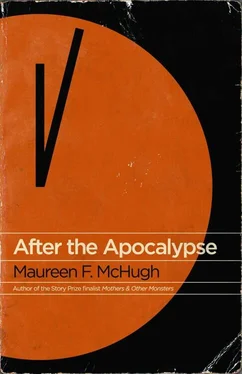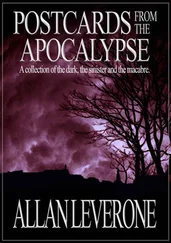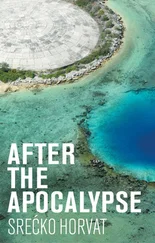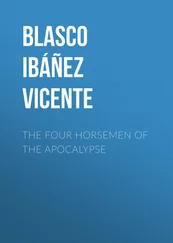But he had children, and he was desperate to get home and maybe get them out of the city. Luz tried to drive downtown and was turned back by police. “I told them that I had to find my boy,” she says, and the tears well up. “They told me that I couldn’t go any farther, that the city was contaminated. They said people were helping anyone left behind.” She tried to insist, but a policeman finally said to her that she had more than one child to think about, and did she want to expose the other two?
She turned the car around and drove north, joining the slow crawl of vehicles out of Baltimore. Her plan was to find a safe place for the other two kids and then turn back. She ran out of gas in Dillsburg, Pennsylvania. A passing motorist stopped and called police for advice, and she and the two children were taken to a school gymnasium that had been turned into a shelter. There, a volunteer (a member of the VFW) passed a Geiger counter over her and the two children, gave them sheets and blankets, and directed them toward cots. It was two more days before she could find someone to give her a ride to a gas station and then back to her car. She drove back to Baltimore but was again turned away, this time with instructions to contact the Red Cross. She did contact the Red Cross, but they had no mention of William. For the next week she made the hour-and-a-half trip to Baltimore every day, only to be turned away.
Finally, there was simply no more money for gas.
There is something compelling about the idea of someone who has lost their memory. It taps into an almost universal desire to wipe the slate clean, to start over. In fiction and in film, it is often a chance for a person to redeem themselves.
Doug Bruce walked into a Coney Island police station on July 3, 2003, and said that he didn’t know who he was or where he lived. He had woken up on the subway without wallet or identification. He could speak, he had skills—since he knew how to swim before he lost his memory, he still knew how. But he could not remember ever having seen the ocean. He couldn’t remember family or friends. Police found a phone number in a knapsack that Bruce was wearing, and a friend came and picked him up. He was a stockbroker with a loft, cockatoos, and a dog. He became a cause célèbre, in no small part because he was so charmed by the world. Everything was new. It was his first rain, his first snow, his first exposure to the Rolling Stones, his first shop window. Friends said that before he lost his memory, he was somewhat arrogant, and that afterward he was much more … delightful.
He has never had MRIs, which would go a long way toward verifying whether or not he has amnesia (recall of memories cause certain kinds of visible brain activity), and there is considerable doubt as to whether or not he is lying. Complete retrograde amnesia, the kind of amnesia Doug Bruce claims to have, is extraordinarily rare. It rarely persists for more than a few months. In 2005, Bruce was the subject of a documentary called Unknown White Male. After it was released, he stopped giving interviews.
A boy with no identification but who said his name was Simon Weiss was found on the streets of downtown Baltimore five days after the bombs exploded. He was hungry and mildly dehydrated, but he had obviously eaten and drunk during the five days. He was brought to a Red Cross relief center, where his name was entered in a data bank for missing persons. When he was asked where his family was, he said he didn’t know. He was asked his mother’s name and said he didn’t know. Area hospitals were still overwhelmed with people who had been, or thought they had been, exposed to radioactive waste from the bombs. His file was marked for follow-up with a psychologist and he was transported to the refugee center outside Richmond, Virginia.
A number of refugees were moved to the Virginia National Guard station at Fort Pickett and put in barracks-style housing. The boy who called himself Simon was there for five months.
“Yeah, I remember it,” he said. “It wasn’t so bad. Boring. I watched a lot of television. I had never seen Lost, so I watched the whole thing from beginning to end in reruns. They were showing two episodes a day from 9:00 to 11:00. I remember that. And then one night I saw the Simpsons where they did the last episode about Lost, where they all get rescued, and they mixed Gilligan’s Island in with it, and Homer Simpson was the old guy, the Skipper.” His face crinkled with laughter. He was animated. He was present in the memory. Asked about what he remembered from before Fort Pickett, he described the Red Cross worker who asked him questions—a somewhat scary lady with gray hair, he said. Asked about before that and his face changed, went oddly slack.
“Do you remember going to school in Pikesville?”
“Yeah,” he said. Pressed for what he remembers. he said, “The monkey bars.” He shrugged. Looked away.
Eventually, when no one came forward to claim him, Simon Weiss was placed in the foster-care system and ended up with a family in Brookneal. (The family did not want to be identified in this article.)
Jim Dwyer, the mechanic whom the boy eventually came to work for, believes that there is a reason that he doesn’t remember. “I don’t know exactly what happened,” Dwyer says, “but something obviously wasn’t right with the family.” He won’t be pinned down, but the implication is he suspects abuse or at least neglect. He believes that the boy separated mentally and emotionally.
Luz, Robert (now 16), and Inez (now 11) deny that there was abuse. “We were never abused,” Robert says. “I don’t know who said that, but it’s not true.”
Robert is a soft-spoken boy who remembers William as “a great kid. A great older brother.” He remembers that William was the one whom their mother left in charge sometimes, but until that last year, he says, they always had a babysitter. Inez has memories, but they are more vague. What she remembers better is the home after Baltimore. “We were always hearing about William,” she says. “About where he might be. Mom was always calling someone because of something on the internet or on television.”
No one but Luz and the children believed that William was alive. There are about a hundred people who have never been accounted for, and it was assumed that William had either been killed during the bombing or had died in the day after. Luz moved them back to Pikesville as soon as they were able, in case William was looking for them. In the year before the Woodholme Country Club took her back, she worked a series of jobs. The kids remember going to a school that was mostly empty, so few people came back. There is no doubt that William’s disappearance affected the family both financially and emotionally. Robert had nightmares, and Inez wet the bed. Both were afraid that things were contaminated. Inez got food poisoning from a hot dog and refused to eat for days. Even now, she is in therapy once a week because she is afraid to eat.
Luz was haunted by the fear that William had been exposed to radiation and was sick. The amount of radiation in the bombs was small, and it dispersed in plumes that trailed south and east, nowhere near Pikesville. She obsessively tracked down as much information as she could about the dispersal of the contaminants. She knew that William’s school trip should not have exposed him (and it didn’t), but she wondered if he had left the museum for some reason. She couldn’t understand, if he wasn’t sick, why he hadn’t shown up on a list of displaced persons, somewhere.
But she couldn’t give up. Finally, a relief worker found a list of children who had been placed in foster homes and gave Luz the number of the social worker who had Simon’s case. The social worker wasn’t sure that Simon and William were the same person, but she gave Luz the phone number of the foster parents. That was on Friday. I asked Luz if she called right away.
Читать дальше












